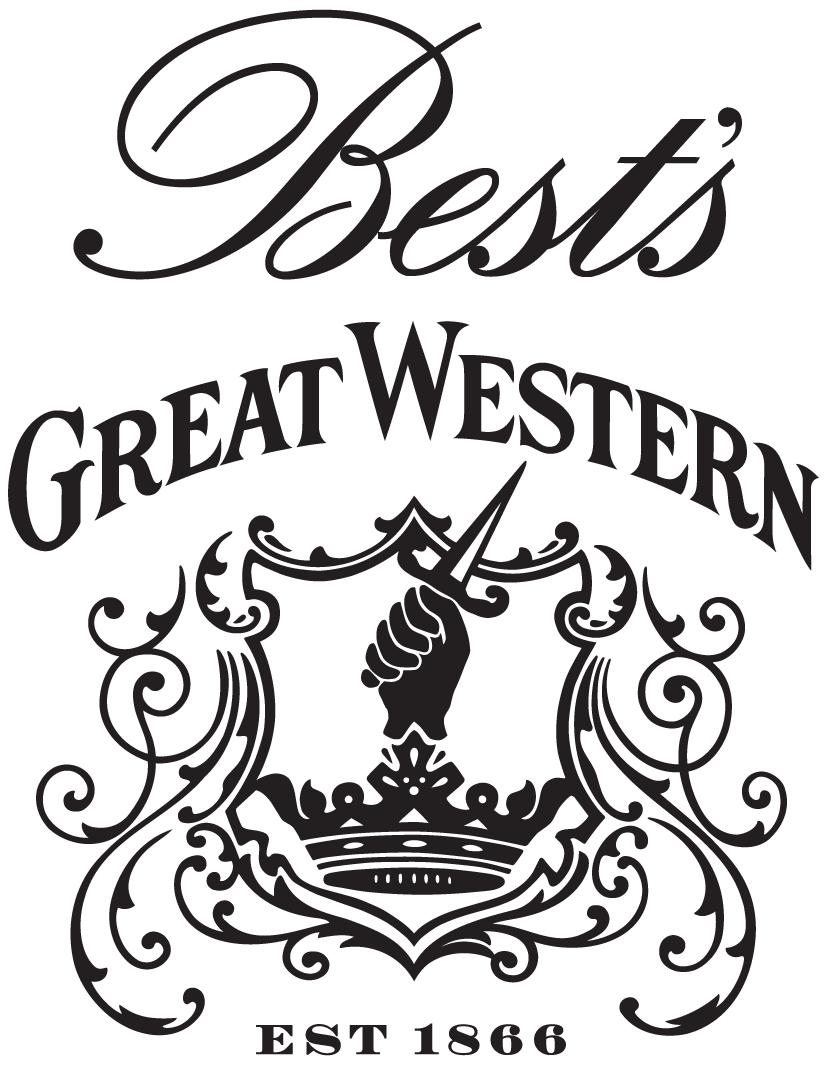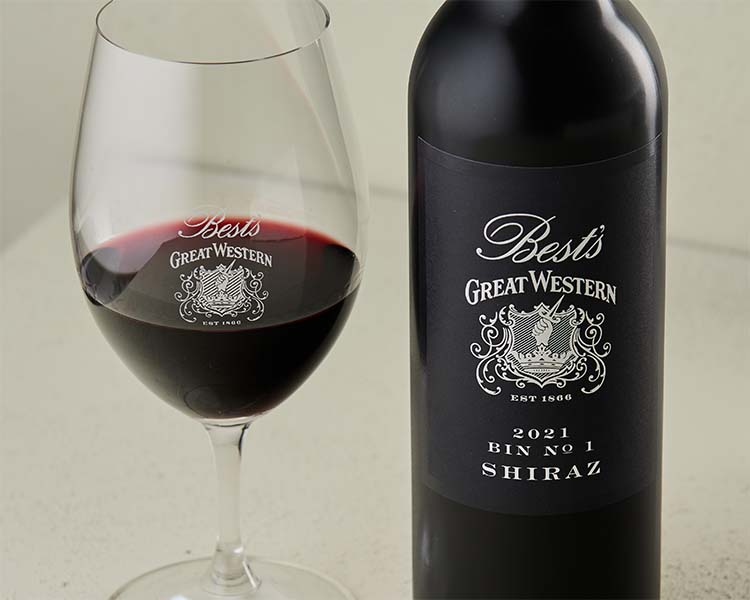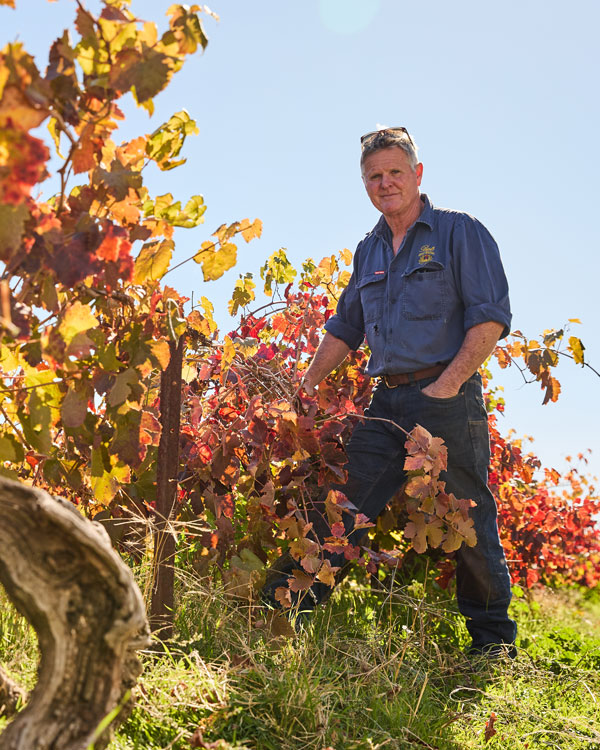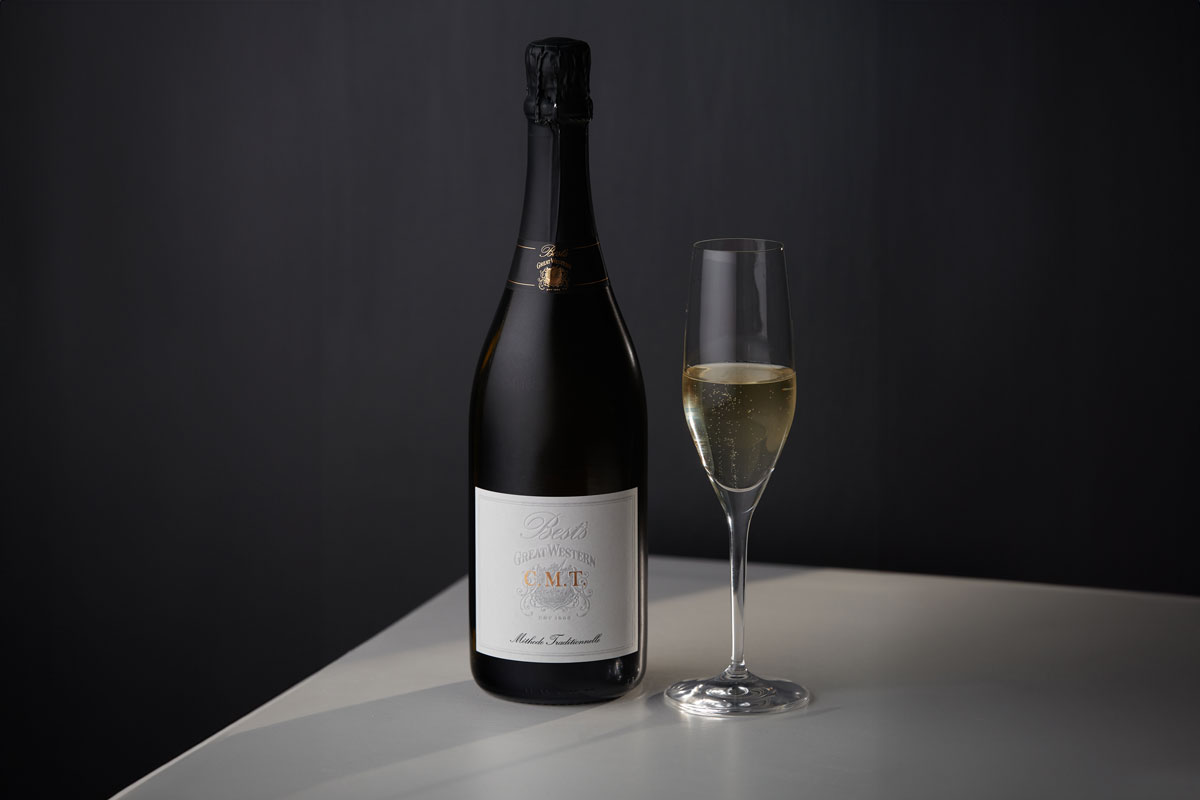Blanc de Noir Cuvée: The Inspiring Story
Visionary or crazy? Time will only tell how our Managing Director Ben Thomson’s latest project, Blanc de Noir Cuvée, will go down in our history books. For now, we’re calling the idea one of his finest. There’s no denying that it’s been a challenging landscape for Aussie winemakers of late.
The introduction of high tariffs severely impacted fine Australian wine exports to China, which caused an oversupply of wine. For many growers like Best’s, it has meant grapes potentially needed to be left on the vines and not harvested. Tough times for so many winemakers and growers – it’s hard to believe we have too much shiraz!
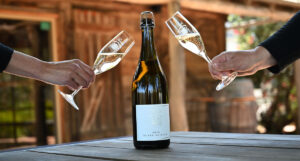
“Out of adversity comes opportunity.”
As Benjamin Franklin famously noted. Rather than dropping the excess fruit from our Sugarloaf Creek Vineyard onto the ground, Ben Thomson had a vision to use it for other purposes. The quality of the fruit was exceptional, it just needed a home. Best’s are known for producing distinctive Great Western shiraz. So why not make a white wine out of the fruit? It’s a concept that messes with your mind a little, but it’s been done before.
With a vision and dogged determination, Ben set out to explore the idea further with the winemaking team. It took a little convincing, some research and trials. But Ben was resolute in his view that something interesting could be made. It’s in his DNA to keep trying new things. Part of what makes an old brand like Best’s continue to be relevant and evolve with the times.
Blanc de Noir comes to fruition
The project started in the vineyard as different techniques and ripeness levels were required to bring the vision to life. We identified a distinctive parcel and treated it slightly differently from the beginning. A section of the vine foliage was removed to let the sun work its magic on the grapes to increase the flavour. It was picked at the start of the ripening period. And by harvesting earlier than you would for a red wine, the acidity is preserved.
The grapes were meticulously harvested and then gently pressed to extract the beautiful flavours. The lack of skin contact meant that the red colour was not transferred. In fact, most red grape varietals actually have white flesh and it is their skins which give the wine it’s colour. After it was pressed, the juice was then cold-soaked and fermented in stainless steel. Then aged in old French oak puncheons for three months before undergoing malolactic fermentation. Finally, the wine was turned into a beautiful cuvée and ready for your enjoyment.
How Does the Blanc de Noir Cuvée Taste?
We think it’s utterly delicious! Full of freshness and vibrancy. Looks can be deceiving! It takes a little while to get your head around the fact that these bubbly beads of delight are made from shiraz grapes. Once you get over that, you will discover brilliant clarity with apple, pear, lemon and lime characters dancing away on the palate. Pair it with oysters and prawns. Savour with dessert and cheese. You can’t go wrong.
Listen in as Ben Thomson and Jacob Parton talk about this wine.
A History of Making White Wine from Red Grapes
Whilst our Blanc de Noir Cuvée may be something new, it’s not the first time we’ve made a white wine from red grapes. In fact, our first Winemaker, Trevor Mast who had come from being educated in Germany used his experience working with riesling to make a white wine from excess shiraz in the late 70s. Although this example was blended with white varietals.
It was a time somewhat different to today. Part of the dynamism of the industry was trying to work out what wine lovers wanted to drink as they moved on from fortified wines. Trevor was the picture of perseverance, vigorous, and enthusiastic about his craft and determined to make a mark. In those days we were able to call the white wine he made “Chablis” given it was all the trend of its time.
Nowadays, that term is only able to be used on labels where the wines are sourced from that specific appellation of Burgundy, France. Trevor was also keen to try making sparkling wine out of the classic varietals which we had growing in our Concongella Vineyard and in 1981 we launched our first Concongella Cuvée.
Frederick Thomson and Baby Bubblie
Long-term Best’s wine lovers would also be familiar with our Baby Bubblie, which was a project that Ben’s Great Grandfather, Frederick Pinchon pioneered in 1939. At the time the Great Depression had ended. While on the road selling wine from the back of his truck, he met the Hemley family who were making soft drinks. Over a glass of wine, the two experimented and mixed their beverages with a surprising result.
Frederick came back to Best’s and thought about the concept some more and in the late 1950s, made three wines – a pink, a white and a red sparkling named Baby Bubblie. They were packaged in bright and attractive packaging and were all the rage at the time. Viv Thomson notes they “took off like a rocket and very much were a financial saviour at the time.”
So, everything old is now new again
Whilst the past innovations were not the driver of the current project, it’s nice to reflect and know that this is just another evolution in our story. Making the most of adversity is something winemakers need to do to survive. We’re raising a glass to the triumph of the Blanc de Noir project. We think you’ll love the fruits of our labour. In the words of Steve Jobs, “Here’s to the crazy ones. The misfits. The rebels. The round pegs in the square holes. The ones who see things differently. Because the people who are crazy enough to think they can change the world, are the ones who do.”
Approach the wine with an open mind and look for the release of a still-white shiraz or Syrah Blanc Cheers.
